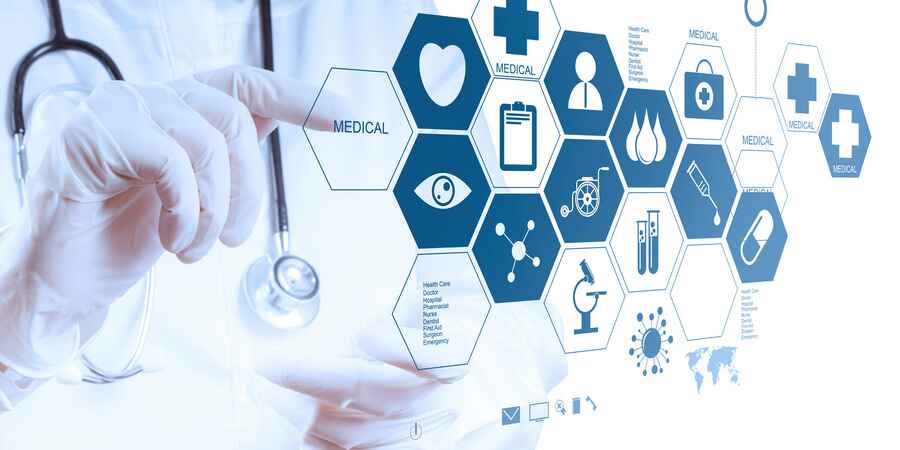Each year, starting from Mother’s Day, the U.S. Department of Health and Human Services (HHS) Office on Women’s Health (OWH) celebrates National Women’s Health Week (NWHW). This year, it’s from 12th-18th May and focuses on “Empowering Women, Cultivating Health: Celebrating Voices, Wellness, and Resilience.”
This theme emphasizes the importance of women taking charge of their health journeys throughout life. If you’re a woman and haven’t taken care of yourself lately as you should, Women’s Health Week is your sign to be more aware of your lifestyle choices. Your lifestyle is the primary factor in deciding your health, and here we’ll look at how you can improve your overall health. So, let’s begin!
Why Do We Celebrate Women’s Health Week?
Women face unique health challenges across their lifespans. From hormonal fluctuations to societal pressures that prioritize caregiving over self-care, women often ignore their health. NWHW serves as a crucial reminder for women to prioritize their health and well-being and encourages women around them. We celebrate women’s week to:
- Engage in healthy behaviors. This includes establishing a preventive care routine, eating a balanced diet, exercising regularly, and getting enough sleep.
- Access preventive care. Regular checkups with healthcare providers allow for early detection and management of potential health issues.
- Speak up for themselves. Women must feel empowered to ask questions, voice concerns, and participate actively in healthcare decisions.
- Break down stigma. Open discussions about women’s health issues like mental health, sexual health, and reproductive health are crucial to fostering a supportive environment.
What’s The Theme for This Women’s Health Week 2024?
Every year, the topics for each day of Women’s Health Week are different, and this year also focuses on a theme for every day. Each day highlights different areas of health for women to ensure their overall health improves.
So, here’s the theme for different days of Women’s Health Week 2024:
Day 1 (May 12th) – Empowering Women in their Health Journey.
This opening day emphasizes the importance of self-awareness and controlling healthcare decisions.
Day 2 (May 13th) – Safe Sexual Health.
This day addresses sexual health education, promoting healthy sexual practices, and discussing sexually transmitted infections (STIs) and contraception.
Day 3 (May 14th) – Shining a Light on Maternal Mental Health.
Maternal mental health, including postpartum depression and anxiety, deserves open discussion and access to appropriate support systems.
Day 4 (May 15th) – Talk About It
Reducing Women’s Health Stigma. Normalizing conversations about all aspects of women’s health helps break down barriers and address common concerns openly.
Day 5 (May 16th) – Understanding Care Is There.
This day encourages women to explore available healthcare options and resources, ensuring they receive the care they need.
Day 6 (May 17th) – Reproductive Health from Puberty to Menopause.
Reproductive health is a lifelong journey, and NWHW emphasizes the importance of comprehensive care at every stage.
Day 7 (May 18th) – Women and Heart Health.
Heart issues can be a silent killer because, by the time they reveal themselves, it’s already too late to protect yourself from the harm they cause. You can avoid several common and fatal health issues with regular checkups, understanding your triggers, and care. This day encourages you to take action to protect your heart.
Resources and Support to Help You Take Action for a Better Tomorrow
NWHW isn’t just about raising awareness; it focuses on empowering women to take action. The Women’s Health website (OWH) provides many free resources to help you and many women around you improve their health. These include:
- Daily NWHW materials. These materials provide information on each day’s topic, with infographics, social media content, and more.
- Women’s Health Topics. Explore various women’s health issues, from nutrition and fitness to mental health and chronic diseases.
- Finding Health Care Resources. Locate healthcare providers, understand insurance coverage, and access tools to manage your health.
Self-Care is Essential
National Women’s Health Week can only push to take action, but the final results depend on how much time you take out for self-care. It should be an ongoing practice for you if you want to see positive results. Here are some things that you must include in your self-care routine to improve your overall health:
- Schedule regular checkups. Don’t wait for symptoms to arise before seeing a doctor. Ensure regular monthly, quarterly, or yearly checkups to keep track of your health. Regular checkups help in the early diagnosis of many life-threatening issues that can be treated with care and medications if diagnosed timely.
- Listen to your body. Pay attention to physical and emotional cues indicating a need for rest, relaxation, or professional help.
- Develop healthy coping mechanisms. Find healthy ways to manage stress, such as exercise, journaling, or meditation.
- Build a support network. Surround yourself with positive, supportive people, encourage healthy choices, and offer emotional well-being. Talk to people if you need and don’t keep things to yourself that can affect your mental health.
Join Cure and Craft:
Calling all healthcare professionals, medical students, and writers! Share your insights, experiences, and knowledge on our platform. Let’s craft informative articles together, shaping the future of healthcare. Connect, inspire, and enlighten our audience.





